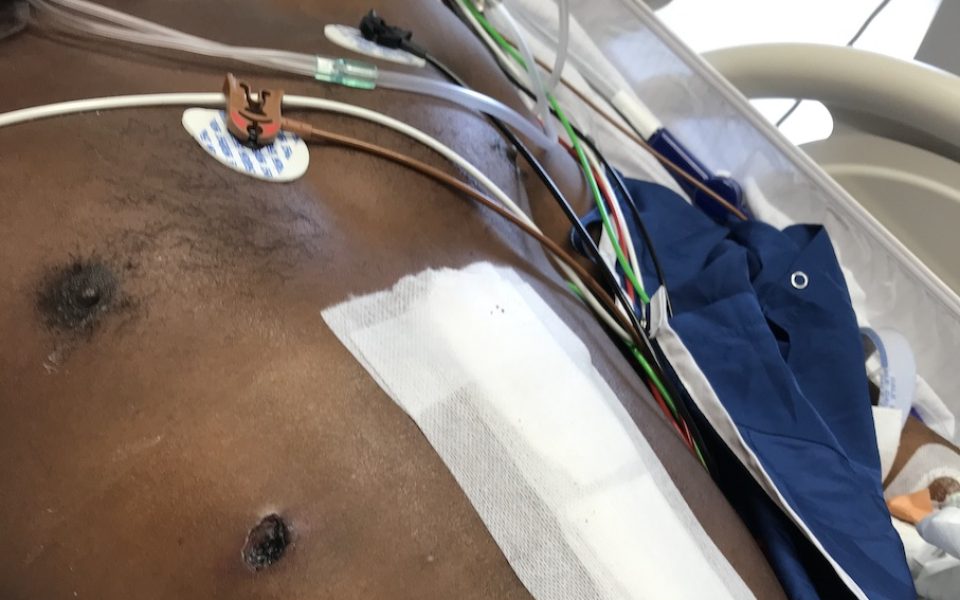We tackled a piece of fast-breaking news last week about an officer-involved shooting in Greensboro with contradicting claims. Police said the man accidentally shot himself while running with a gun, but the guy with the bullet in him — along with a couple witnesses — said he was shot by the police.
In the absence of definitive proof — like, for instance, police body-camera footage of the event, which by state law the public is not allowed to see without a court order — and, if we’re being honest, because of a degree of general mistrust in law enforcement institutions, we checked it out.
Our investigation was unresolved, just a compilation of eyewitness accounts and information from the incident report, because that’s what journalism is.
In between the time we posted the story online and the day our weekly newspaper came out, Greensboro police released the body-camera footage of the incident, in which the suspect clearly admits to shooting himself by accident to an officer on the scene.
As the new information came in, we made an update to the original story, and created another post about the release of the footage with clips of everything to back it up.
There’s so much to glean from this.
For one, police can release body-camera footage pretty damn quickly when they want to. For another, it shows that body camera footage can exonerate the police , too. Either way, every single recorded minute of a police officer’s body-camera footage should be public record.
This, of course, would require a change in state law.
It also raises the question of whether we should have done this story at all.
Our answer: Absolutely. We were presented with conflicting stories of a police altercation in which a citizen took a bullet. Unable to verify what actually happened, we presented the facts we were able to uncover. Without our reporting, we believe the Greensboro police would never have released the video of this altercation. And it puts all local law enforcement agencies on notice that we will be aggressively reporting on them when we find something that doesn’t add up
Join the First Amendment Society, a membership that goes directly to funding TCB‘s newsroom.
We believe that reporting can save the world.
The TCB First Amendment Society recognizes the vital role of a free, unfettered press with a bundling of local experiences designed to build community, and unique engagements with our newsroom that will help you understand, and shape, local journalism’s critical role in uplifting the people in our cities.
All revenue goes directly into the newsroom as reporters’ salaries and freelance commissions.


so what you’re trying to say is you got caught lying and decided to take one side of a story. this is not journalism, this was race baiting and anti police rhetoric. at no time in this article or others have you offered am apology or a well designed pat on the back to the officers who rendered aid.
you still attempt to make a broad assertion about law enforcement and now turn this incident into body cameras and the need for them to be public record. you also make a disingenuous statement about public mistrust about law enforcement. you don’t state who in the public has a mistrust, which in fact it is only a small fraction of the country.
the assertion about everything in a body camera should be available to the public, is absurd to say the least. officers deal with a gambit of calls from simple disagreements to death. some of these include juveniles and victims of horrific crimes.
would anyone like to see your child who was a victim or witness of a crime on television? how about rape victims, do you think they want their horrific incident available for all to see? what about medical calls? there is a federal law called hippa, look it up.
again, this rag of a publication gets spanked about it’s one sided reporting and now you attempt to place the blame on police for your piss poor “journalism”. i would have seily taken a breath before to published this tripe.
sorry to all who read my response was filled with spelling and grammatical errors